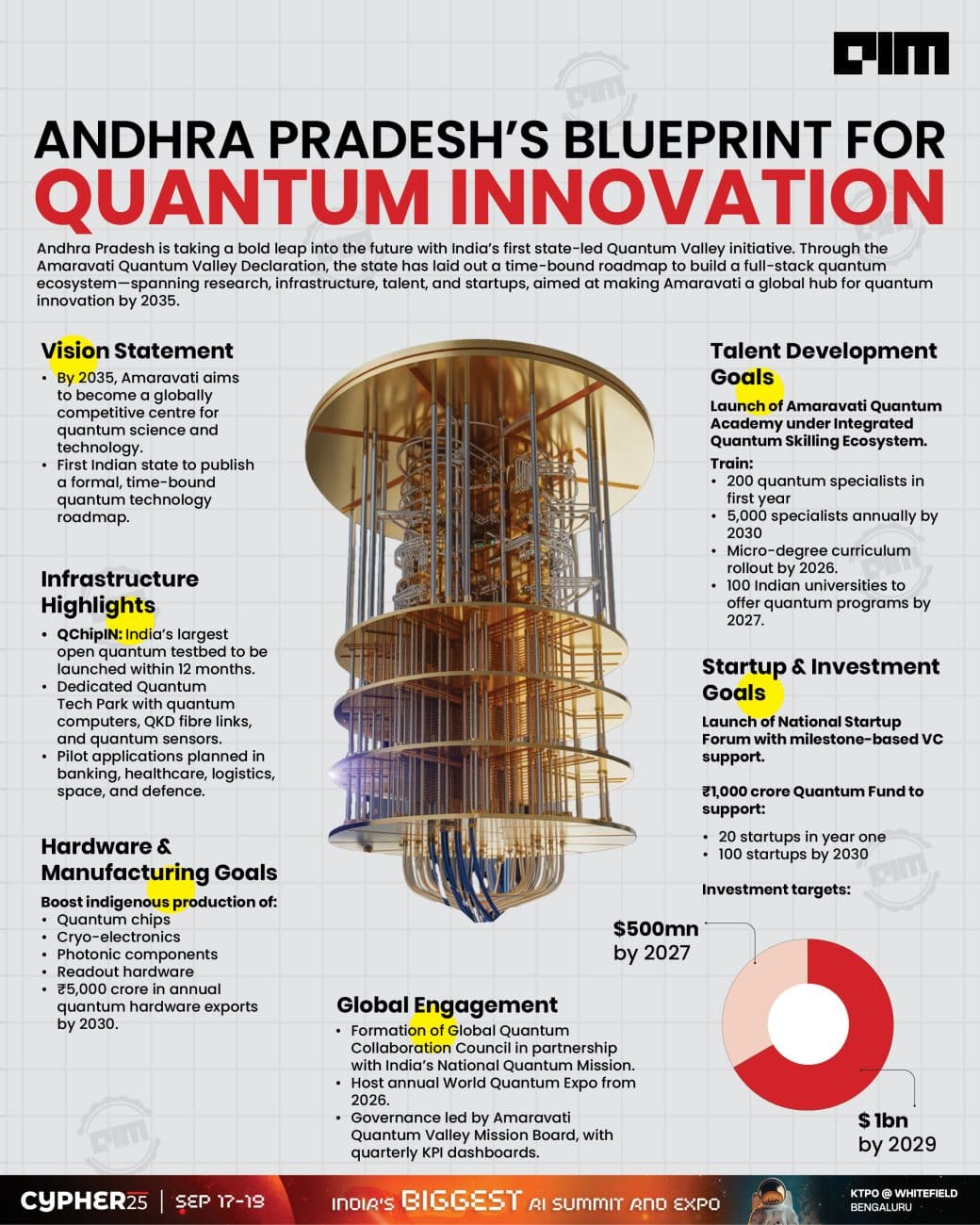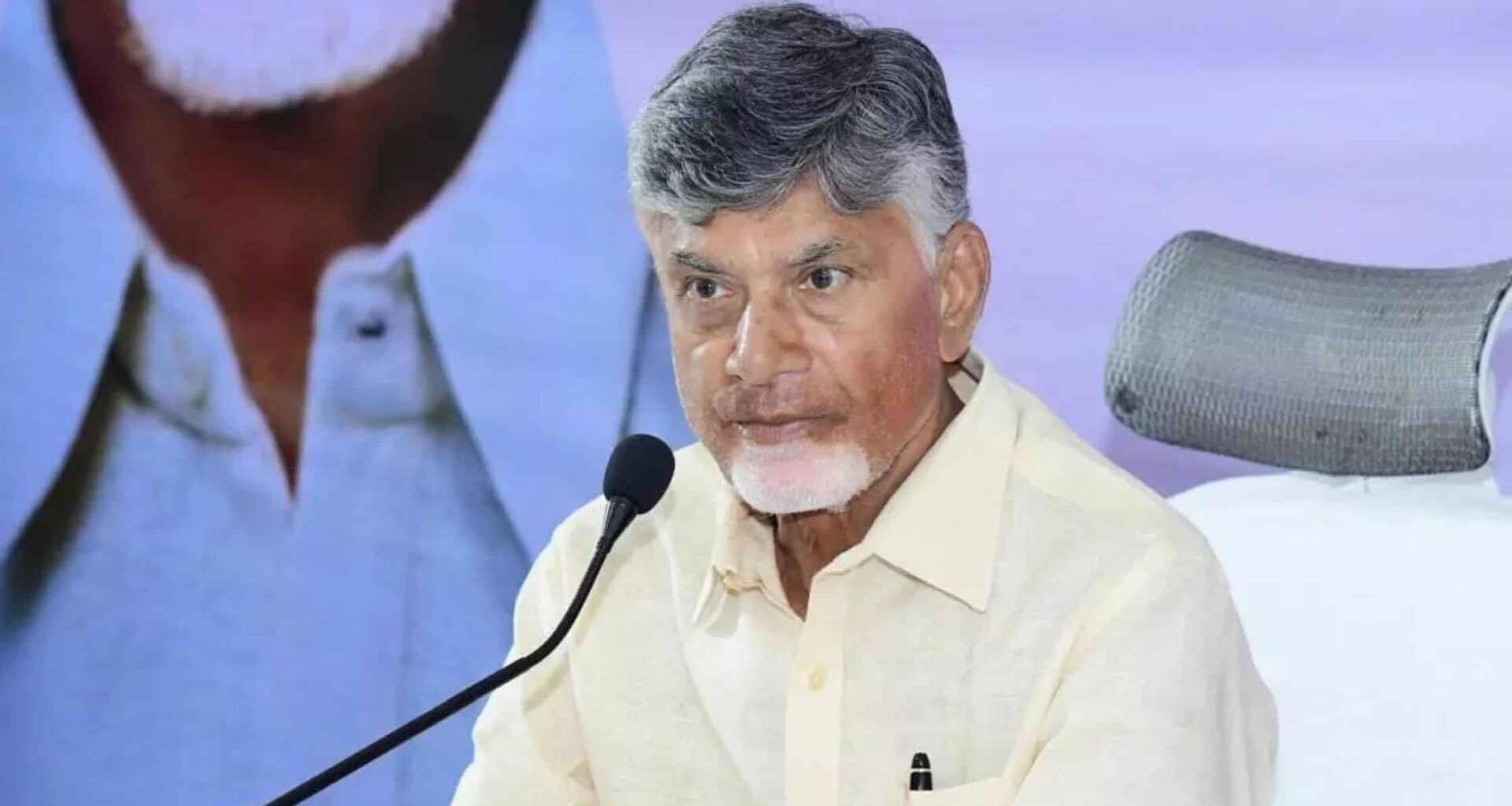The Andhra Pradesh government has formally approved the Amaravati Quantum Valley Declaration, laying the foundation for what it calls a “globally competitive centre” for quantum science and technology.
Issued through a government order on July 7, the declaration is the first comprehensive, state-level policy framework of its kind in India, aimed at developing a full-stack quantum ecosystem centred in Amaravati.
The declaration was the key outcome of the Amaravati Quantum Valley Workshop held on June 30 in Vijayawada, which brought together a cross-sectoral mix of government officials, industry leaders, researchers, and startups.
Designed as a platform for strategic dialogue, the workshop catalysed the drafting of a forward-looking document that outlines shared goals for quantum research, infrastructure, talent development, startup incubation, and global collaboration.
Framing the vision behind the move, Andhra Pradesh IT minister Nara Lokesh, in a LinkedIn post, said, “Quantum is the answer to problems that classical computing can no longer solve. Quantum Valley is going to be a game-changer, and as a policymaker, it is an opportunity of a lifetime to witness the creation of a people-centric innovation ecosystem of this scale, in collaboration with IBM, Larsen & Toubro, and Tata Consultancy Services.”
The roadmap under the Amaravati Quantum Valley Declaration is both expansive and time-bound.

Within a year, the state plans to establish QChipIN, which is set to become India’s largest open quantum testbed, according to the annexure of the government order accessed by AIM.
It will house quantum computers, quantum key distribution (QKD) fibre links, and sensor networks to run pilots in sectors like healthcare, banking, logistics, defence, and space. The infrastructure will be located in a dedicated tech park developed through academia-industry partnerships.
Among the most ambitious targets is the installation of the IBM Quantum System Two in Amaravati by January 1, 2026, the declaration stated. By then, the state also intends to be capable of testing 100 quantum algorithms.
Further down the line, three quantum computers based on different qubit technologies are expected to be deployed by 2027, with the goal of reaching a combined capacity of 1,000 effective qubits by 2029.
In an assertive push for indigenous capability, the declaration includes a manufacturing goal: to build domestic production facilities for cryo-electronics, quantum chips, photonic components, and readout hardware. This segment is expected to reach ₹5,000 crore in annual exports by 2030.
Grooming Talent
The human capital strategy is equally robust. Amaravati will launch the country’s first Integrated Quantum Skilling Ecosystem through the Amaravati Quantum Academy. Starting with 200 trained specialists in the first year, the academy aims to train 5,000 individuals annually by 2030. At least 20 universities in Andhra Pradesh and 100 across India are expected to offer quantum technology programs by 2027, with micro-degree curricula ready by 2026.
According to the declaration, a National Startup Forum will be formed to disburse capital using a milestone-based venture model. A ₹1,000 crore quantum fund will support 20 startups in the first year and 100 by 2030.
Investment targets are equally aggressive. Amaravati aims to attract $500 million in quantum investments by 2027 and $1 billion by 2029.
To align with global trends and standards, the declaration proposes the creation of a Global Quantum Collaboration Council, in partnership with India’s National Quantum Mission (NQM). This body will promote international research alliances, build trusted supply chains, and foster global interoperability.
A multi-stakeholder Amaravati Quantum Valley Mission Board will oversee governance, monitor progress with quarterly KPI dashboards, and organise an annual World Quantum Expo beginning in 2026.
With this integrated and time-bound approach, Andhra Pradesh seeks to transform Amaravati into a global centre for deep-tech innovation by 2035, the order further stated.
The Rest of India
Currently, Andhra Pradesh is the only Indian state to have released a formal declaration guiding its quantum technology efforts.
Karnataka, in collaboration with the Indian Institute of Science, has a Quantum Research Park (QuRP), a hub for quantum computing and related technologies. QuRP aims to encourage scientific inventions and innovations in quantum computing and related fields.
Other states such as Delhi, Maharashtra, and Tamil Nadu are participating in quantum research through central government initiatives, primarily via the NQM approved by the Union Cabinet in April 2023 with a budget of ₹6,003.65 crore.
These efforts are distributed across thematic hubs hosted by institutions like IIT Madras, IIT Delhi, and IIT Bombay, focusing on academic research, lab infrastructure, and startup incubation. However, none have released a standalone policy declaration like Andhra Pradesh.
Credits to Naidu
Andhra Pradesh CM N Chandrababu Naidu is widely credited with transforming Hyderabad into a major IT hub during his tenure as the CM of united Andhra Pradesh in the late 1990s and early 2000s. As a result, he earned the moniker ‘CEO of Andhra Pradesh’.
KT Rama Rao, a political rival from Telangana and a former state IT Minister, had acknowledged Naidu’s significant role in attracting investments to Hyderabad, crediting the TDP chief for laying the foundation of the city’s IT growth.
“I can’t take undue credit for Microsoft being here (in Hyderabad). In fact, all credit goes to Chandrababu Naidu…He definitely has done his best. In fact, when Hyderabad was not as well-known as it is today in the IT space, he went all the way to Bill Gates, convinced him and eventually the development centre (of Microsoft) was established about 17 years ago. So, all credit to him for that,” KTR was quoted as saying.
